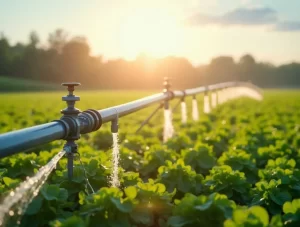Top CPVC Pipe Fittings Manufacturers & Why Fitwell Leads in 2025

Introduction: The Rise of CPVC Pipe Fittings in 2025
The growth of CPVC pipe fittings manufacturers in Gujarat, particularly in Rajkot, has taken the spotlight in 2025 due to increasing demand for advanced plumbing solutions. Known for their unique ability to withstand high temperatures, CPVC pipes are favored over alternatives like UPVC, especially for hot water plumbing systems. This durability is why CPVC pipes excel in applications requiring higher thermal resistance, making them the best choice for many industries.
The advantages of CPVC pipes for plumbing extend beyond heat resistance, including corrosion-free properties and lightweight design. Experts note “5 reasons why CPVC pipes are the best choice for hot water plumbing” in modern projects. As industries explore CPVC vs UPVC, alignment with comprehensive guides highlights CPVC’s versatility in both residential and commercial projects, solidifying its future in plumbing.Agricultural pipes are essential components of modern farming, ensuring efficient irrigation, water distribution, and drainage systems. They play a crucial role in optimizing water usage, preventing soil erosion, and enhancing crop productivity. Unlike traditional irrigation methods, agricultural pipes provide uniform water distribution, reducing water wastage and operational costs. With advanced materials, versatile designs, and easy installation, these pipes cater to diverse agricultural needs, from small-scale farms to large commercial plantations. This comprehensive guide explores everything you need to know about agricultural pipes, including their types, benefits, selection criteria, installation techniques, and maintenance practices. By choosing the right agricultural pipes, farmers can achieve efficient water management, sustainable irrigation, and increased crop yields.
The History and Evolution of CPVC Piping Systems
The journey of CPVC pipes and fittings began in the 1950s when scientists sought durable, heat-resistant alternatives for plumbing. Unlike UPVC, CPVC incorporates chlorine, enhancing its temperature resilience, which is why CPVC pipes are best for hot water applications. CPVC debuted in plumbing systems in the 1960s, marking a pivotal shift from metal to thermoplastic solutions. Over time, CPVC’s corrosion resistance and adaptability secured its preference over metal pipes, especially when discussing “CPVC vs. UPVC: Understanding the Differences and Applications.” Today, many CPVC pipe fittings manufacturers in Gujarat, particularly in Rajkot, drive global advancements, highlighting why CPVC pipes are the future of plumbing innovations.
Key Materials Behind CPVC: What Sets It Apart
Chlorinated Polyvinyl Chloride (CPVC) stands out from other materials due to its superior chemical structure and composition, making it a preferred choice for plumbing systems. Compared to alternatives like uPVC, CPVC shows enhanced resistance to heat and corrosion. This makes it a top choice for manufacturers, such as premier CPVC pipe fittings manufacturers in Gujarat. he molecular level, creating a material that withstands temperatures up to 93°C. This property answers why CPVC pipes are best for hot water applications. Combined with its ability to resist scaling, CPVC pipes are the future of plumbing, offering durability and efficiency.
Cost Efficiency: Why CPVC is a Budget-Friendly Choice
CPVC pipes and fittings stand out as a cost-effective solution offered by leading manufacturers, including CPVC pipe fittings manufacturers in Gujarat and Rajkot. These pipes require minimal maintenance due to their corrosion resistance and long-term durability. Unlike traditional metal pipes, CPVC eliminates the need for frequent repairs, reducing operational costs significantly.
Manufacturers of CPVC pipes, known for their efficiency, also offer a more affordable material compared to alternatives like copper, while maintaining excellent performance, especially for hot water plumbing—one of the 5 reasons why CPVC pipes are the best choice for hot water systems. Furthermore, the lightweight nature of CPVC minimizes transportation and installation expenses. By comparing CPVC vs UPVC, CPVC often prevails as the versatile and economic choice for modern plumbing needs.
Durability and Longevity: CPVC’s Superior Performance
CPVC pipes and fittings are widely recognized for their unmatched durability, making them the preferred choice for residential, commercial, and industrial plumbing systems. Leading cpvc pipe fittings manufacturers in Gujarat, including major players in Rajkot, ensure these products are designed to withstand both extreme pressure and high temperatures, addressing the core concerns of why CPVC pipes are best for hot water applications.
Some reasons contributing to CPVC’s longevity include:
- Resistance to Corrosion: Unlike metallic pipes, CPVC does not rust, pit, or deteriorate.
- Thermal Durability: CPVC can sustain high-temperature fluids, making it ideal for thermal applications.
- Chemically Stable: It resists chemicals commonly found in water, ensuring stable performance.
- UV Resistance: CPVC doesn’t degrade under sunlight, unlike UPVC or other polymers.
Understanding cpvc vs upvc differences further highlights CPVC’s advantages in long-term performance, positioning CPVC pipes as the future of plumbing in modern systems.
Versatility in Applications: Residential, Commercial, and Industrial Use
When evaluating a CPVC pipe fittings manufacturer in Gujarat, such as those known for quality production in Rajkot, one of the critical aspects is the broad applicability of CPVC pipes and fittings. These products are recognized as the future of plumbing due to their versatility, making them suitable for residential, commercial, and industrial use.
Residential Applications
CPVC pipes are ideal for domestic plumbing systems, particularly for hot water pipelines. Why CPVC pipes are best for hot water lies in their ability to withstand high temperatures and resist scaling—two key factors for home comfort and durability. For homeowners considering 5 reasons why CPVC pipes are the best choice for hot water plumbing, heat resistance, longevity, low maintenance, easy installation, and cost efficiency emerge as decisive advantages.
Commercial Applications
Commercial establishments demand piping systems capable of handling constant water supply and higher-pressure environments. Research into CPVC vs UPVC: understanding the differences and applications highlights CPVC’s superiority for handling varying temperatures, making it a preferred choice in hotels, offices, and large-scale residential projects. Top 10 advantages of using CPVC pipes for plumbing emphasize their lightweight properties, durability, and corrosion resistance, suitable for all commercial scenarios.
Industrial Applications
For industries, durability and chemical resistance remain paramount. Manufacturers in Rajkot have optimized CPVC pipes and fittings to meet the rigorous needs of factories, chemical plants, and other industrial settings. A CPVC pipe fittings comprehensive guide showcases their effectiveness in transporting aggressive fluids without leaching or degradation. In these heavy-use environments, why CPVC pipes are the future of plumbing is primarily due to their ability to combine strength, flexibility, and sustainability.
Environmental Impact and Sustainability of CPVC
CPVC pipe fittings, known for their durability, are increasingly recognized for their reduced environmental footprint compared to traditional materials. A prominent CPVC pipe fittings manufacturer in Gujarat emphasizes the sustainability aspect of CPVC by focusing on its long lifespan, which minimizes resource wastage over time. Unlike metal alternatives, CPVC pipes and fittings require less energy during production, generating fewer carbon emissions.
Manufacturers, including a leading CPVC pipes and fittings manufacturer in Rajkot, adopt efficient molding processes to reduce environmental strain. Additionally, CPVC’s resistance to corrosion and chemical degradation prevents contamination, ensuring safer plumbing systems. Its lightweight nature also reduces transportation energy consumption. These attributes highlight why CPVC pipes are the future of plumbing, offering eco-friendly, efficient solutions for hot and cold water systems.
Ease of Installation: A User-Friendly Solution
Fitwell, a leading CPVC pipes and fittings manufacturer in Gujarat, stands out for offering solutions that simplify plumbing tasks for professionals and homeowners alike. CPVC’s lightweight nature and precision-engineered fittings facilitate quick and hassle-free installations. Unlike traditional materials, CPVC requires minimal tools—pipe cutters, solvent cement, and a few preparatory steps.
Its smooth interior surface allows tight connections without complex threading, ensuring leak-proof joints. For hot water projects, CPVC is superior due to its thermal resistance, reinforcing why CPVC pipes are best for hot water plumbing. Fitwell’s fittings, crafted with advanced technology in Rajkot, epitomize both reliability and time-saving design—qualities demanded in today’s fast-paced plumbing needs.
Comparison: CPVC vs. PVC, Copper, and Steel
In plumbing systems, CPVC stands out among alternatives like PVC, copper, and steel for several reasons. Unlike PVC, CPVC pipes and fittings offer robust features suitable for hot water applications, addressing the demand in industries such as residential and commercial plumbing. Manufacturers, including leading CPVC pipe fittings manufacturers in Gujarat, prioritize CPVC for its high-temperature tolerance, showcasing why CPVC pipes are best for hot water systems.
Copper, while durable, comes at a higher cost and is prone to corrosion over time. Steel pipes, though sturdy, lack flexibility and involve labor-intensive installation. CPVC is lightweight, resistant to rust, and less expensive than copper and steel, highlighting why CPVC pipes are the future of plumbing. The continuous demand for quality products from manufacturers, like CPVC pipes and fittings manufacturers in Rajkot, underscores CPVC’s advantages in modern plumbing applications.
Industry Trends: Innovations Driving CPVC Popularity in 2025
In 2025, advancements in the plumbing industry are significantly bolstering the demand for CPVC pipes and fittings. Innovative manufacturing techniques adopted by CPVC pipe fittings manufacturers in Gujarat and beyond are ensuring enhanced durability and chemical resistance. With cities like Rajkot emerging as hubs for innovation, CPVC solutions now cater to an expansive range of applications.
Ongoing R&D highlights CPVC’s superior performance compared to UPVC in high-temperature scenarios. The reasons why CPVC pipes are best for hot water include thermal stability, corrosion resistance, and longevity. Furthermore, smart plumbing systems favor CPVC due to its adaptability and ease of installation. As sustainability drives industry transformation, CPVC pipes are increasingly seen as the future of plumbing innovations.
Challenges and Limitations: Addressing CPVC Concerns
Despite the increasing popularity of CPVC pipes and fittings, certain challenges remain prevalent. One primary concern is material brittleness, especially in extreme cold temperatures, limiting its application in colder climates. CPVC’s sensitivity to UV exposure also requires proper insulation during outdoor installations. Some CPVC pipe fittings manufacturers in Gujarat have noted compatibility issues with certain solvent cements, impacting joint integrity over time.
Chemical resistance, a key advantage, falters against certain hydrocarbons, which restricts industrial applications. Plumbing professionals highlight installation complexities, including careful adherence to cutting and sealing techniques. When comparing CPVC vs UPVC, CPVC’s higher cost deters budget-conscious buyers. Correct steps mitigate these limitations, allowing CPVC pipes and fittings manufacturers in Rajkot to ensure durability and performance across multiple environments.
Expert Insights and Testimonials: Why Professionals Choose CPVC
Industry experts and installers frequently highlight CPVC pipes and fittings as the premier choice for modern plumbing, particularly for conveying hot water. According to a leading CPVC pipe fittings manufacturer in Gujarat, CPVC outperforms both PVC and UPVC by withstanding high temperatures, making it ideal for hot water plumbing. A CPVC pipes and fittings manufacturer in Rajkot points to its chemical resistance and non-corrosive properties, ensuring durability in diverse environments.
Professionals often underscore the top 10 advantages of using CPVC pipes for plumbing, emphasizing ease of installation, affordability, and extended lifespan. A plumbing contractor shared that understanding “CPVC vs UPVC: Differences and Applications” clarified why CPVC is indispensable for hot and cold water systems, noting its robustness and reliability. This aligns with global trends advocating why CPVC pipes are the future of plumbing for sustainable, high-performance systems. Testimonials affirm CPVC delivers on quality, efficiency, and long-term value.
Future Outlook: CPVC’s Continued Growth Beyond 2025
The demand for CPVC pipes and fittings is projected to maintain its upward trajectory beyond 2025, driven by advancements in plumbing needs and material science. CPVC’s high-temperature resistance further solidifies its relevance, showcasing why CPVC pipes are best for hot water. Innovations from key players like CPVC pipe fittings manufacturers in Gujarat and Rajkot are expected to enhance durability, cost-efficiency, and ease of installation.
Growing market awareness of 5 reasons why CPVC pipes are the best choice for hot water plumbing and increasing acceptance globally reinforce predictions of wide-scale adoption. Comparisons such as CPVC vs UPVC: Understanding the differences and applications are anticipated to further distinguish CPVC’s advantages. Increasing focus on sustainable materials also echoes why CPVC pipes are the future of plumbing.
Conclusion: Why CPVC Pipe Fittings Will Remain Dominant
CPVC pipe fittings have demonstrated unparalleled versatility, making them an indispensable solution to modern plumbing challenges. Manufacturers in Gujarat, particularly CPVC pipes and fittings manufacturers in Rajkot, have continually advanced production techniques to ensure high durability and reliability. CPVC’s ability to handle high-temperature water efficiently highlights why CPVC pipes are best for hot water applications, outperforming alternatives like UPVC in robustness and heat resistance.
A comprehensive guide to CPVC pipe fittings reveals its superiority through factors like chemical resistance, low thermal conductivity, and ease of installation. The top 10 advantages of using CPVC pipes for plumbing underscore its ability to marry longevity with affordability, ensuring its relevance in residential and industrial systems. With growing awareness of why CPVC pipes are the future of plumbing, the material prevails as the ideal choice for durable, cost-efficient, and sustainable solutions.
Stay on the forefront of industry trends by checking out our latest content
Stay ahead with our latest content, designed to keep you informed on the newest industry trends and insights. Discover valuable updates that help you lead in your field.

Trusted uPVC Pipes Manufacturers for India’s Top Contractors
Introduction: The Surge in Demand for uPVC Pipes Among Top Contractors in India The construction and infrastructure sectors in India have witnessed a significant transition toward sustainable and long-lasting materials.

Top Innovations in Agricultural Pipe Fittings for Water Savings [2025]
Introduction to Agricultural Pipe Fittings and Water Sustainability Agricultural pipe fittings play a pivotal role in building efficient irrigation systems, crucial for modern farming practices. By exploring the versatility of

Expeart Tips from MDPE Pipe Fittings Manufacturers to Avoid Failures
Expeart Tips from MDPE Pipe Fittings Manufacturers to Avoid Failures Understanding MDPE Pipe Fittings: An Overview MDPE (Medium Density Polyethylene) fittings, used extensively in gas and water systems, offer strong,
Request a Free Consultation
Get personalized plumbing solutions with a free consultation from Fitwell.

